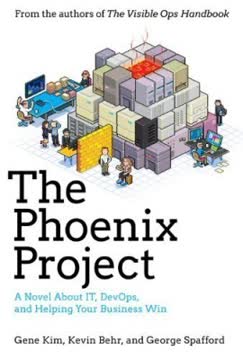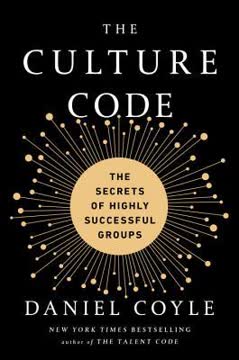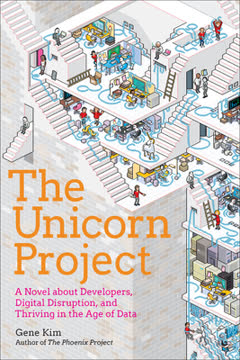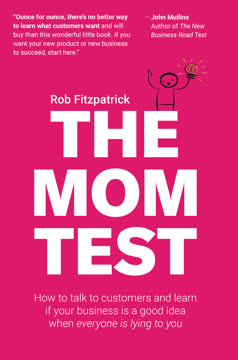Key Takeaways
1. The Responsibility Process: A Mental Framework for Growth
The Responsibility Process shows us that we are far more powerful and able than we usually give ourselves credit for.
The Responsibility Process is a mental pattern that reveals how our minds process thoughts about taking or avoiding responsibility when things go wrong. It consists of six stages: Lay Blame, Justify, Shame, Obligation, Quit, and Responsibility. The first five stages are coping mechanisms where we avoid taking responsibility, while the final stage, Responsibility, is where we grow and overcome problems.
Understanding this process allows us to:
- Recognize our natural tendencies to avoid responsibility
- Move through the stages more quickly
- Reach the Responsibility stage where we can effectively solve problems
By practicing awareness of these mental states, we can develop a more resourceful mindset and approach challenges with greater freedom, power, and choice.
2. Responsibility vs. Accountability: Understanding the Difference
Responsibility always trumps accountability.
Responsibility is internal, focusing on our feelings of ownership and willingness to take effective action. It's about how we respond to situations and our ability to create, choose, and attract our reality. Accountability, on the other hand, is external, dealing with performance expectations and agreements set by others.
Key distinctions:
- Responsibility is self-oriented; accountability is other-oriented
- Responsibility focuses on the present; accountability often looks to the past
- Responsibility is subjective and transient; accountability is more objective and constant
Understanding this difference allows leaders to foster a culture of responsibility rather than relying solely on accountability measures. By emphasizing responsibility, organizations can achieve higher levels of engagement, performance, and innovation.
3. Intention, Awareness, and Confront: The Three Keys to Responsibility
Intention, Awareness, and Confront will be discussed again throughout the remaining chapters of this book.
The Three Keys to Responsibility are essential tools for unlocking and accessing The Responsibility Process:
- Intention: The commitment to operate from Responsibility when things go wrong.
- Awareness: The ability to recognize your mental state within The Responsibility Process.
- Confront: The willingness to face your internal conflict directly.
These keys work together to help you:
- Move through The Responsibility Process more effectively
- Develop greater self-leadership skills
- Increase your ability to solve problems and achieve your goals
By practicing these keys, you can build your mental "responsibility muscle" and become more effective in all areas of life.
4. The Catch Sooner Game: A Tool for Changing Habits
Catch Sooner is a gentle and effective approach to learning and unlearning, change, and growth.
The Catch Sooner Game is a four-step process for changing unwanted habits or behaviors:
- Catch: Notice yourself engaging in the behavior you want to change.
- Change: Demonstrate the desired behavior instead.
- Forgive: Practice self-compassion for being human and not changing faster.
- Vow: Commit to catching yourself sooner next time.
This game is effective because:
- It employs Intention, Awareness, and Confront in a humanizing way
- It breaks change into small, practical, immediate actions
- It makes habit change incremental, targeted, and adaptive
By playing the Catch Sooner Game, you can gradually modify your behavior and thought patterns, leading to lasting personal growth and development.
5. Leading Yourself First: Applying Responsibility to Daily Life
Every upset is an opportunity to learn.
Self-leadership is crucial for practicing responsibility effectively. This involves:
- Applying The Responsibility Process to yourself, not others
- Reframing upsets as learning opportunities
- Asking "What do I want?" instead of "What should I do?"
- Discovering and pursuing what you truly want in life
- Focusing on the essential and eliminating the nonessential
- Claiming wins to build the power of Intention
By leading yourself first, you develop the ability to:
- Make conscious choices aligned with your values
- Respond more effectively to challenges
- Create a life of greater freedom, power, and choice
This self-leadership forms the foundation for leading others and creating positive change in your relationships and organizations.
6. Shared Responsibility: Fostering Collaborative Leadership
Shared responsibility is shared leadership.
Shared responsibility occurs when people collaborate on projects or initiatives larger than any individual. Key aspects include:
- Alignment: Ensuring everyone is focused on a shared goal or purpose
- Integration: Operating with shared values, principles, and beliefs
- Positive interdependence: Creating a "we're in this together" mindset
To foster shared responsibility:
- Take 100% responsibility for every relationship
- Use your integrative power to attract others to a common purpose
- Play a "bigger game" that benefits all stakeholders
- Address problems between roles, teams, or departments
By promoting shared responsibility, leaders can create high-performing teams and organizations where leadership naturally emerges at all levels.
7. Developing Responsibility in Others: Teaching and Mentoring
The Responsibility Process works only when self-applied.
To develop responsibility in others, focus on:
- Study: Commit to lifelong learning about The Responsibility Process
- Demonstrate: Model responsible behavior in your own life
- Ask: Invite others to practice responsibility with you
- Teach: Share your knowledge and experiences with others
When teaching or coaching responsibility:
- Don't validate coping responses (don't go into agreement)
- Avoid the responsibility-for-advice transfer
- Encourage others to think for themselves
For parents, demonstrate your own humanity and practice of responsibility in front of your children. This allows them to learn by example rather than through lectures or forced obedience.
8. Creating an Organization of Choice: Leadership Through Responsibility
In the organization of choice, the culture focuses first on personal responsibility and then on role accountability.
To create an organization of choice:
- Set the context for responsibility from the top
- Prioritize personal responsibility over role accountability
- Use the five-step culture-building bridge:
- Am I operating from Responsibility?
- Do I know what I want?
- Have I asked for what I want?
- Do I have agreement for what I asked for?
- If 1-4 are "Yes," then call to account
By focusing on responsibility first, leaders can:
- Foster a culture of self-leadership and shared ownership
- Reduce the need for heavy-handed accountability measures
- Create a more engaged, productive, and innovative workforce
This approach leads to an organization where people experience personal freedom, choice, and power while producing results that matter.
Last updated:
FAQ
What is The Responsibility Process: Unlocking Your Natural Ability to Live and Lead with Power by Christopher Avery about?
- Core concept: The book explores how people process personal responsibility, introducing a predictable mental pattern called The Responsibility Process.
- Framework for growth: It explains how individuals get stuck in coping states or can grow by taking 100% responsibility for their actions and outcomes.
- Practical application: Avery provides tools and strategies to help readers understand, practice, and master personal responsibility in all areas of life.
Why should I read The Responsibility Process by Christopher Avery?
- Unlock personal power: The book helps readers discover their natural ability to live and lead with power by taking full ownership of their experiences and results.
- Transform coping into growth: It offers a clear framework to move from unproductive coping states to the empowering state of Responsibility.
- Applicable across roles: The insights and tools are valuable for self-leadership, leading others, and developing people, improving effectiveness and relationships.
What are the key takeaways from The Responsibility Process by Christopher Avery?
- Seven mental states: Understanding the mental states people cycle through when facing problems, with only Responsibility leading to growth.
- Three Keys to Responsibility: Intention, Awareness, and Confront are essential for practicing and mastering responsibility.
- Self-leadership first: Effective leadership starts with self-application of responsibility before expecting it from others.
- Practical tools: Methods like the Catch Sooner Game and daily scorecards help integrate responsibility into daily life.
What is The Responsibility Process framework in Christopher Avery’s book and how does it work?
- Mental states sequence: The framework describes a natural pattern of mental states—Denial, Lay Blame, Justify, Shame, Obligation, Quit, and Responsibility—that people move through when facing problems.
- Coping vs. growth: The first six states are coping mechanisms that keep problems unresolved, while Responsibility is the state where problems are owned and solved.
- Stepwise movement: People typically progress through these states by refusing to accept the limiting beliefs of each, ultimately reaching Responsibility.
What are the seven mental states in The Responsibility Process and what do they mean?
- Denial: Ignoring or refusing to acknowledge the problem.
- Lay Blame: Assigning fault to others for the issue.
- Justify: Making excuses or rationalizations for why the problem exists.
- Shame and Obligation: Blaming oneself (Shame) or feeling trapped by duty (Obligation), both of which are coping states.
- Quit and Responsibility: Giving up (Quit) or fully owning and solving the problem (Responsibility).
How does Christopher Avery define the difference between being responsible and taking responsibility?
- Being responsible: Conforming to societal expectations, seeking approval, and often feeling trapped or shallow.
- Taking responsibility: Seeing oneself as the causal force in life, owning choices and outcomes, and experiencing freedom and power.
- Impact on fulfillment: Taking 100% responsibility leads to personal growth, fulfillment, and effective leadership, while merely being responsible can leave people feeling unfulfilled.
What are the Three Keys to Responsibility in Christopher Avery’s method?
- Intention: Deliberately committing to operate from the mental state of Responsibility when facing problems.
- Awareness: Recognizing which mental state you are in during upsets or frustrations, enabling conscious choice.
- Confront: Courageously facing your internal conflicts and upsets directly to uncover truths and move forward.
How does Intention play a role in taking responsibility according to The Responsibility Process?
- Foundation for change: Intention is the starting point; without it, other efforts to practice responsibility are ineffective.
- Daily commitment: It involves a lifelong commitment to choose Responsibility over coping states whenever problems arise.
- Practical impact: Intention differentiates those who passively cope from those who actively seek ownership and solutions.
How does Awareness help in practicing responsibility in Avery’s framework?
- Self-observation: Awareness means recognizing your current mental state, such as Lay Blame or Obligation, especially when upset.
- Non-judgmental approach: It involves observing thoughts and feelings objectively, with compassion rather than self-criticism.
- Catalyst for change: Awareness, combined with Intention, enables you to stop coping behaviors and move toward Responsibility.
What does Confront mean in The Responsibility Process and why is it important?
- Facing internal conflict: Confront means to face your own upsets and limiting beliefs directly, with openness and curiosity.
- Uncovering truth: By confronting assumptions, you discover insights that allow you to resolve problems and grow.
- Building courage: Regularly practicing Confront builds confidence and deepens self-leadership.
How does the Catch Sooner Game work in Christopher Avery’s The Responsibility Process?
- Four-step process: The steps are Catch (notice the behavior), Change (demonstrate the desired behavior), Forgive (let go of shame), and Vow (commit to catching yourself sooner next time).
- Humanizing change: The game incorporates Intention, Awareness, and Confront in a compassionate way, reducing resistance and shame.
- Daily practice: Tools like the Daily Scorecard Game help track mental states and accelerate progress toward Responsibility.
How can leaders use The Responsibility Process to create a culture of responsibility in organizations?
- Modeling behavior: Leaders must first practice Responsibility themselves, as self-application is essential before expecting it from others.
- Context setting: Leaders can create an environment that invites others to practice Responsibility, fostering shared leadership and collaboration.
- Culture-building steps: Avery outlines a five-step bridge from Responsibility to accountability, emphasizing self-checking, clarifying desires, asking, gaining agreement, and then holding to account.
Review Summary
The Responsibility Process receives mixed reviews. Many praise its core concepts and potential for personal growth, while some criticize its repetitive style and lack of scientific evidence. Readers appreciate the book's insights on taking responsibility and overcoming coping mechanisms. Some find the writing style overly promotional and lacking depth. Despite criticisms, many reviewers believe the book offers valuable tools for leadership and self-improvement. The responsibility process itself is highly regarded, even by those who dislike the book's presentation.
Similar Books










Download PDF
Download EPUB
.epub digital book format is ideal for reading ebooks on phones, tablets, and e-readers.




